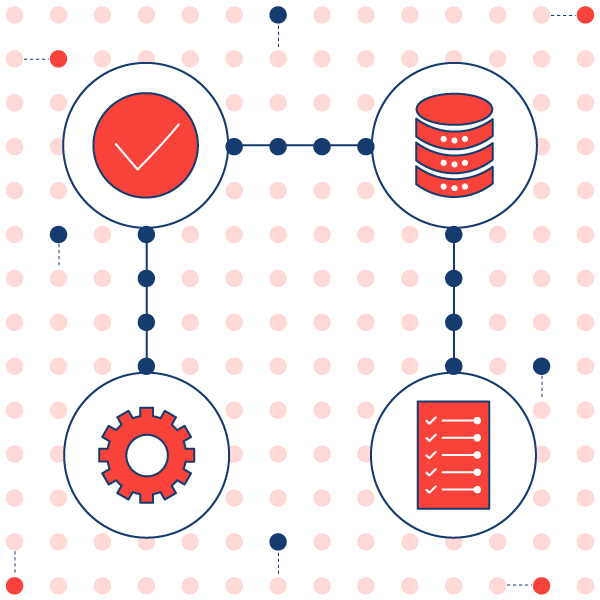Data Management

Unlock Success with a Clear Data Strategy
The strategy to achieving success through
robust data includes the following
elements:
Consolidated Information
All data in one place, accessible to the entire organization. Uniform information for all.
Clean Data
Maximum control over data and data quality. Elimination of incorrect information.
A Quick and Single Source of Information
Data is available whenever you need it for further decision-making. No more waiting.
We Design and Implement
Specific Solutions to Add Value to Your Data
Data science
Data Quality
Master Data Management
Reference Data Management
Data Mesh
Metadata Management
Data Lineage
Unleash Business Potential with a Tailored
Data Management Approach
High-Quality Data for Analytics
Effective data management ensures that data is accurate, complete, and reliable. These are essential for high-quality data analytics. Accurate data leads to more precise insights and predictions, improving the outcomes of data-driven decisions.
Enhanced AI Model Performance
The effectiveness of an AI model relies on the quality of the data they are trained on. Implementing proper data management ensures that AI algorithms have access to clean, well-organized, and relevant data —a critical factor for developing effective AI models.
Scalability of Data Analytics and AI
As data volumes expand, effective data management practices enable organizations to efficiently scale their data analytics and AI initiatives. This includes handling larger datasets, seamlessly integrating diverse data sources, and deploying more complex models.
Robust Data Governance
A robust data governance framework is essential for analytics and AI, ensuring that data is used responsibly, ethically, and in compliance with regulations. Effective data management reinforces this framework by establishing clear policies and procedures for the responsible use of data.
Cost Efficiency
Efficient data management enables organizations to optimize storage and processing costs. By minimizing data redundancy and enhancing data quality, organizations can decrease the expenses associated with data analytics and AI initiatives.
Faster Insights and Decision-Making
With well-managed data, organizations can expedite the transformation of data into insights. This leads to accelerated decision-making, allowing businesses to respond rapidly to market changes and capitalize on new opportunities.
Improved Data Security
Proper data management involves implementing robust security measures. This is a vital step to protect the data used in analytics and AI against breaches and unauthorized access.
Innovation Capabilities
High-quality, well-managed data can drive innovation in AI and analytics. Enterprises can experiment with analytics approaches, develop advanced AI models, and explore emerging technologies such as machine learning (ML) and deep learning.

